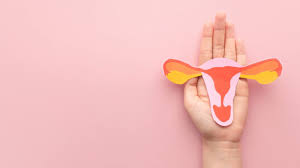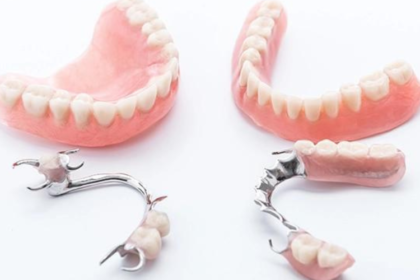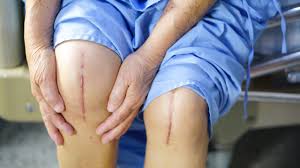Introduction
Vaginal hygiene is a crucial aspect of a woman’s overall health. A healthy vagina has a natural balance of bacteria and a self-cleaning mechanism, but certain habits, products, and lifestyle choices can disrupt this balance, leading to discomfort or infections.
This article will guide you through practical steps for maintaining good vaginal hygiene and preventing common issues.
Understanding Vaginal Health
1. Natural pH and Flora
The vagina typically maintains a pH level between 3.8 and 4.5, which supports the growth of good bacteria (lactobacilli) and keeps harmful microbes in check.
2. Self-Cleaning Mechanism
Unlike other parts of the body, the vagina cleans itself through natural discharge. This discharge is usually clear or white and odorless.
Daily Habits for Good Vaginal Hygiene
1. Use Mild, Unscented Soaps for External Cleaning
Clean only the vulva (external area) with warm water and mild, fragrance-free soap. Avoid using harsh soaps inside the vagina.
2. Wear Breathable Underwear
Choose cotton underwear that allows airflow and absorbs moisture. Avoid wearing tight, non-breathable materials for long periods.
3. Wipe Front to Back
After using the bathroom, always wipe from front to back to prevent bacteria from the anus from entering the vaginal area.
4. Change Panty Liners and Pads Regularly
During menstruation or daily use, change pads, tampons, and panty liners frequently to prevent moisture buildup and bacteria growth.
Menstrual Hygiene Tips
1. Choose the Right Products
Whether using sanitary pads, tampons, or menstrual cups, always:
- Wash hands before and after use
- Change products every 4–6 hours
2. Avoid Scented Products
Scented tampons, pads, and sprays may disrupt the natural balance and cause irritation or allergic reactions.
Safe Practices for Sexual Health
1. Practice Safe Sex
Use condoms to prevent STIs. After sex, urinate and gently clean the external genital area to reduce infection risk.
2. Avoid Douching
Douching removes healthy bacteria and alters the vaginal pH, increasing the risk of infections like bacterial vaginosis or yeast infections.
Maintaining Vaginal Health Through Diet
1. Stay Hydrated
Drink plenty of water to flush out toxins and maintain overall health.
2. Eat Probiotic-Rich Foods
Yogurt, kefir, and fermented foods help maintain healthy bacteria in the vaginal area.
3. Include Vitamin-Rich Foods
Foods rich in Vitamin C, D, and Zinc help in boosting immunity and vaginal tissue health.
Avoiding Common Vaginal Health Mistakes
| Mistake | Why It’s Harmful |
|---|---|
| Douching | Disrupts natural flora and increases infections |
| Wearing wet clothes too long | Encourages bacterial and fungal growth |
| Overusing antibiotics | Kills good bacteria, causes yeast infections |
| Tight clothing every day | Traps moisture and heat, increasing infection risk |
When to See a Doctor
Signs That Should Not Be Ignored:
- Foul-smelling discharge
- Persistent itching or burning
- Pain during urination or intercourse
- Irregular bleeding or spotting
Consulting a gynecologist early can prevent complications and help in maintaining proper vaginal health.
Safe Feminine Hygiene Product Use
1. Avoid Vaginal Perfumes and Sprays
These can cause irritation or allergic reactions.
2. Use pH-Balanced Wipes if Needed
Only for external use and not as a daily routine—prefer warm water and a clean washcloth.
3. Always Check Product Ingredients
Avoid parabens, alcohol, and synthetic fragrances in intimate products.
Conclusion
Maintaining good vaginal hygiene doesn’t require fancy products—just informed, gentle, and consistent care. Understanding what helps and harms vaginal health can prevent discomfort, infections, and long-term issues. Adopt daily hygiene practices, wear breathable clothing, eat well, and visit a gynecologist regularly to keep your vaginal health in top shape.
FAQs
1. Can I use soap to wash inside my vagina?
No. The vagina is self-cleaning. Use mild soap only for cleaning the outer part (vulva), not the internal canal.
2. How often should I change my underwear?
Change it daily and after any activity that causes sweating or moisture buildup.
3. Is it okay to use vaginal wipes daily?
Occasionally, yes—but regular use isn’t recommended. Warm water and clean hands are enough for daily care.
4. What foods help in maintaining vaginal health?
Probiotics (like yogurt), cranberries, garlic, and leafy greens support a healthy vaginal environment.
5. Can poor hygiene cause vaginal infections?
Yes. Unclean practices, like not changing pads frequently or wiping incorrectly, can introduce harmful bacteria.
6. Does shaving the pubic area affect vaginal health?
Shaving can cause microtears or irritation. Maintain hygiene while shaving and avoid sharing razors.
7. Why does vaginal odor change?
Slight changes are normal. However, strong, foul smells may indicate an infection and require medical attention.
8. Should I see a doctor for vaginal itching?
Yes, especially if the itching is persistent, severe, or accompanied by discharge, pain, or odor.








